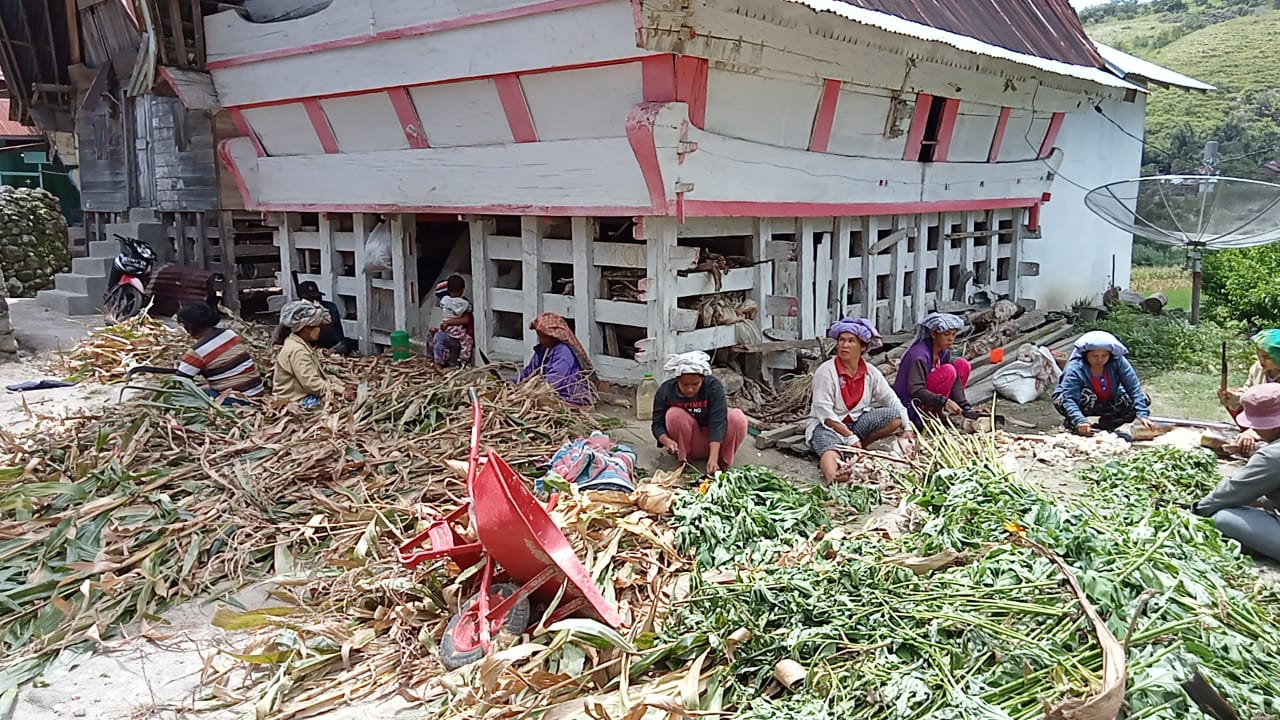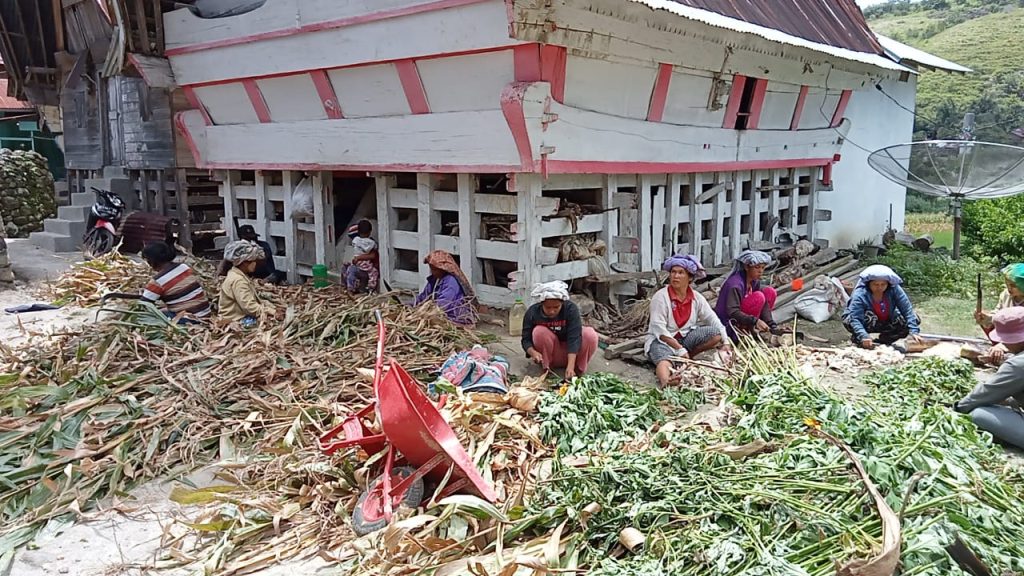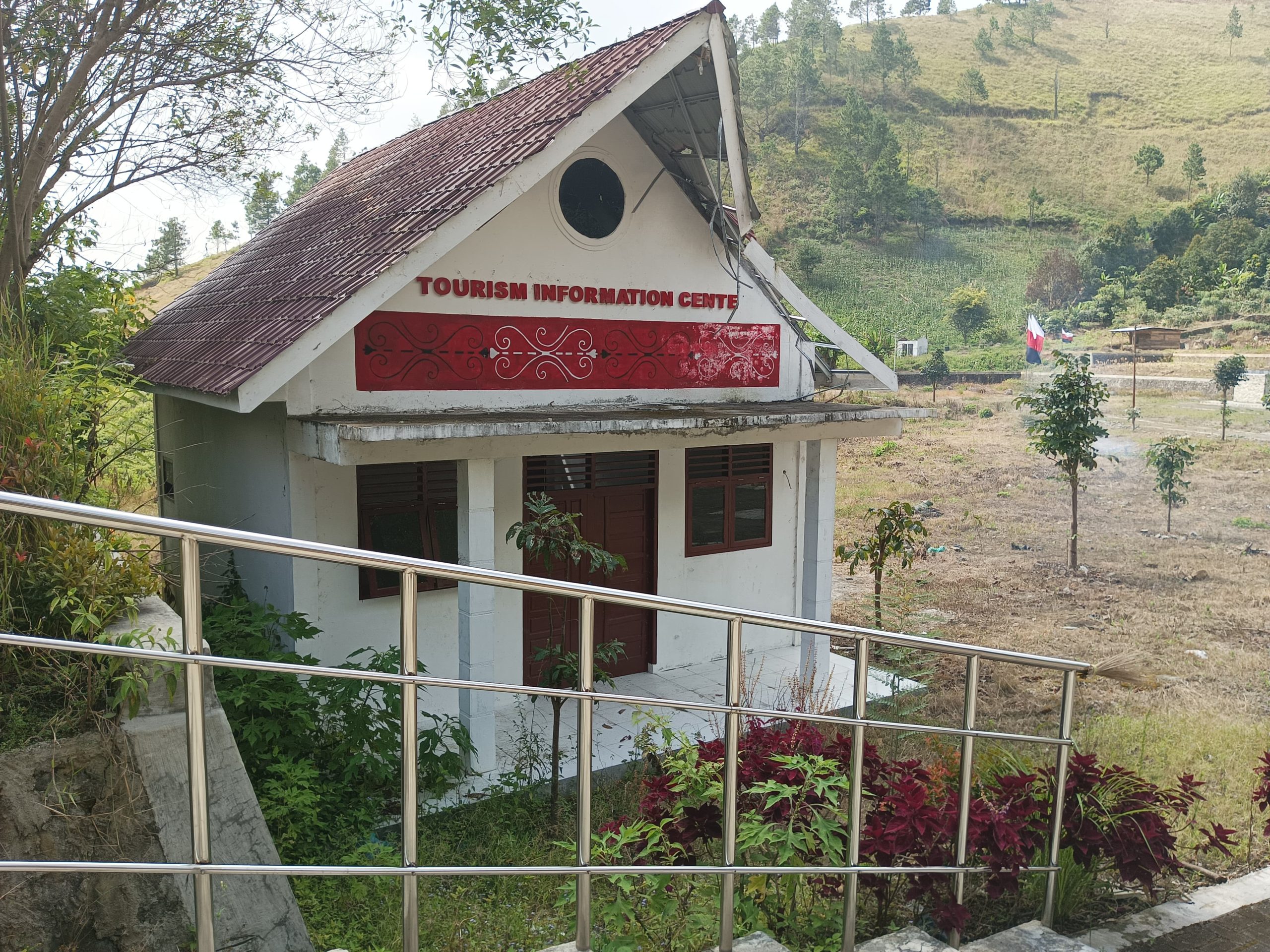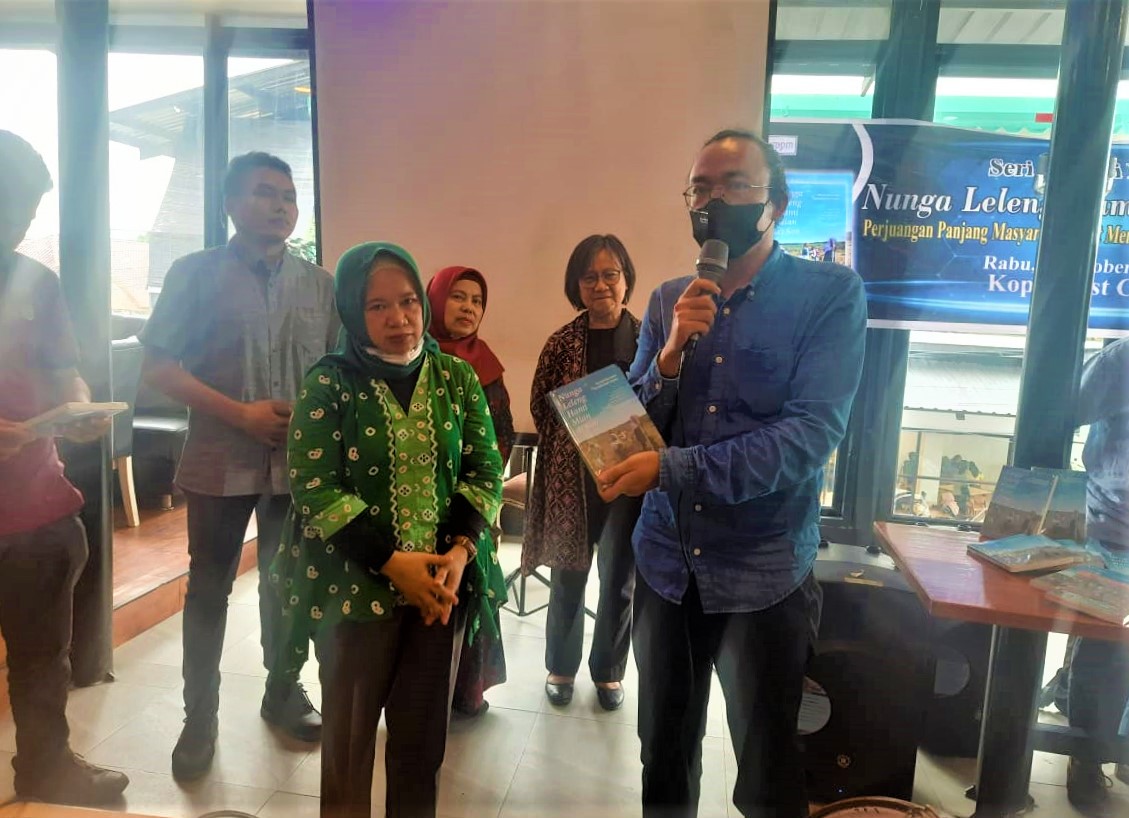Farmers and agriculture are still the main sectors supporting Indonesia’s economic growth. According to data from Indonesia’s Central Bureau of Statistics (BPS), 40.83% of Indonesia’s total labor force works in the agricultural sector. However, BPS also noted that the number of households relying on the agricultural sector decreased by 5 million households over 10 years (since 2003), leaving only around 26.13 million households still living in the agricultural sector (2013 agricultural census). This decline is mostly from farmers with small landholdings (0.3 ha) who left their farms because they no longer promised prosperity. The 26.13 million households are also mostly dominated by smallholder farmers who are likely to leave their farms due to the lack of welfare guarantees.
Farming is not just an individual/family affair with routine activities such as sowing, planting, fertilizing, and harvesting. Indeed, farmers’ livelihoods are inseparable from the context of political economy at the local, national, and even international levels. The fact that many farmers’ problems cannot be solved by farmers themselves is evidence that these problems are not caused by farmers’ behavior but by the failure of the state to fulfill its responsibilities. Farmers, in general, are always faced with price problems, high prices of agricultural inputs, infrastructure, pest attacks, crop failure due to natural disasters, and others. Almost all of these problems do not originate from the farmers themselves but are closely related to state policies. Government policies also show no change for the better. Government programs related to agriculture have never really touched the fundamental problems of farmers, only to the extent of the program. Farmers remain objects of development, part of a system that works to feed many people. Various policy changes related to agriculture position farmers as vulnerable and tend to become victims. Meanwhile, the state should respect, protect, and fulfill the promotion of human rights.
These problems prove that the state is still not present to fulfill and protect the rights of farmers. In fact, on August 6, 2013, President Susilo Bambang Yudhoyono passed Law No. 19 of 2013 on the Protection and Empowerment of Farmers. Through this policy, the government claims that farmers are no longer alone. This means that the state has the responsibility to provide protection and empowerment to farmers. There are 6 areas of regulation in Law No.19 of 2013, including:
- Planning
- Farmer Protection
- Farmer Empowerment
- Financing and Funding
- Supervision
- Community Participation
According to this Law, protection provided to farmers includes infrastructure and facilities for agricultural production, business certainty, agricultural commodity prices, elimination of high-cost economic practices, compensation for crop failure due to extraordinary events, early warning systems, and handling the impacts of climate change and agricultural insurance. Empowerment given to farmers includes education and training, counseling and mentoring, development of systems and facilities for marketing agricultural products, consolidation and guarantee of agricultural land area, provision of financing and capital facilities, easy access to science, technology, and information, and strengthening farmer institutions.
In 2019, there was a flash flood in Buntu Mauli Village, Sitio-Tio sub-district. This incident caused losses to the community because their agricultural land was damaged. However, until now no compensation has been given by the state to farmers whose agricultural land was damaged. They also had to give up some of their farmland close to the riverbank to be normalized. In addition, many farmers are affected by fluctuations in the prices of agricultural products in Samosir. For example, onion farmers. These farmers often suffer losses due to price fluctuations. Meanwhile, farmers in the Ronggur Ni Huta area, which used to be famous for coffee farming, have experienced a decline in production in recent years. This has caused many people to switch to tapping pine resin as an alternative source of income. Currently, the community is looking forward to corn. However, the prices of seeds, fertilizers, and medicines are still expensive.
The enactment of the Law on Farmer Protection and Empowerment does not seem to provide any solution to the problems faced by these farmers. In addition, this law has not been implemented in the regions. This can be seen in the low budget for the agricultural sector. In 2021, the average budget for the agricultural sector in the 4 districts assisted by KSPPM was only around 2.35%. How is it possible to provide protection and empowerment to farmers with such a small budget? This is also due to the absence of local regulations (Perda) as a derivative of Law No. 19 of 2013 so local governments still do not have the obligation to make budget plans concerning the protection and empowerment of farmers. The hope is that with the presence of local regulations, local governments are obliged to carry out planning for the agricultural sector related to farmer protection, farmer empowerment, funding and financing, supervision, and community participation. With the existence of the Local Regulation on Farmer Protection and Empowerment, the district government is obliged to provide a budget for the protection and empowerment of farmers at the regional level. This means that the budget for the agricultural sector in the regions must be increased.
Of course, a local regulation on the protection and empowerment of farmers at the local level may not necessarily answer all farmers’ problems. However, this must be a step taken as a manifestation of the state’s obligation to fulfill farmers’ rights. Also, the government’s claim that “farmers are no longer alone” is not limited to jargon to polish the country’s image.**









